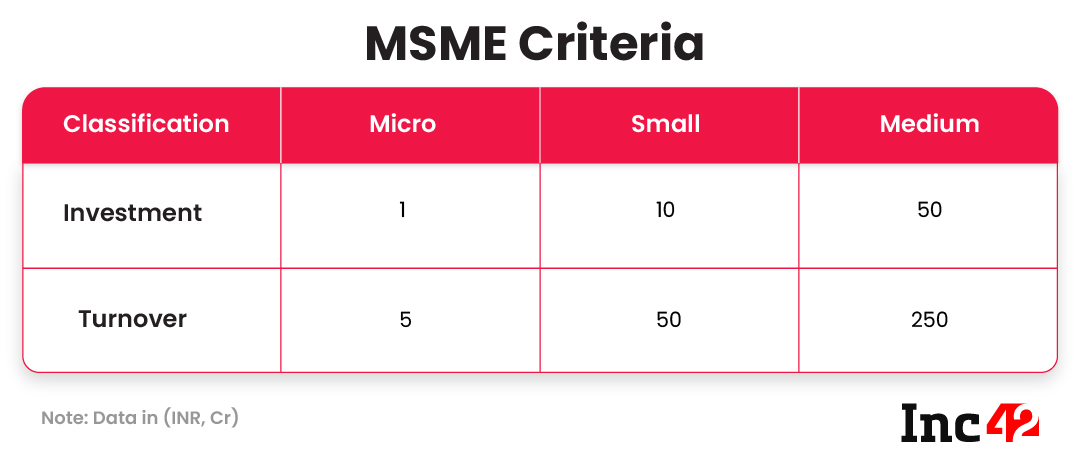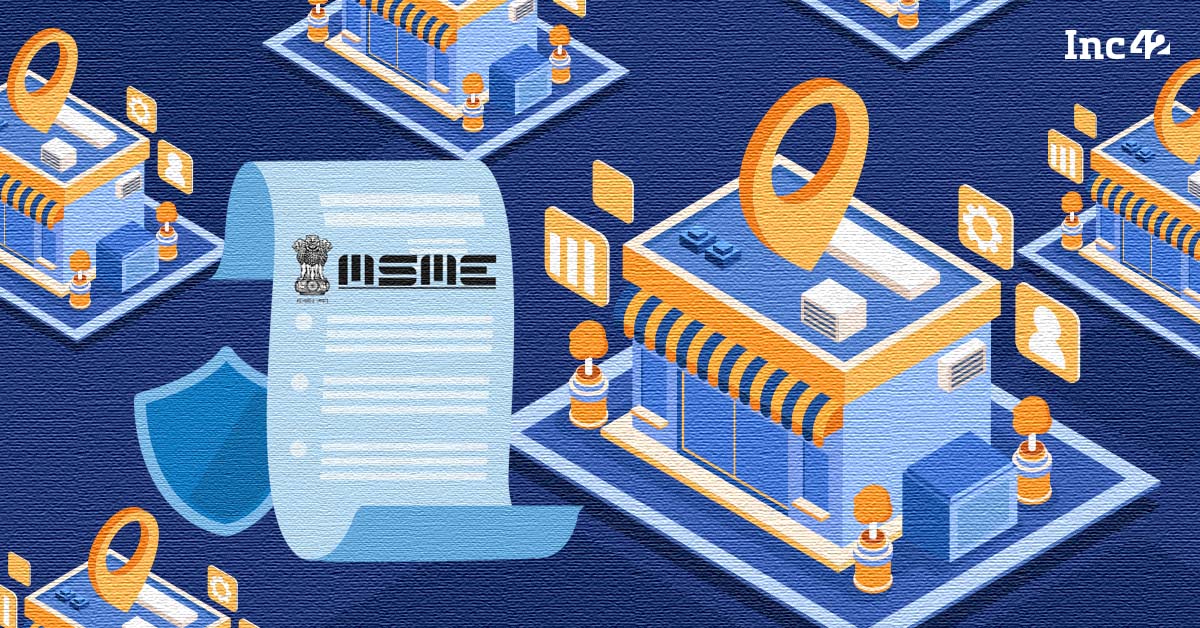Having released the consultation paper in 2014 to envision national policy, it took more than seven years to release the draft National MSME Policy
The draft policy has identified nine action areas where SOPs have been proposed to address the key issues
According to a survey conducted by SIDBI, 67% of MSMEs were temporarily shut for up to three months during FY 2021, while 50% of the respondent units witnessed a decline of more than 25% in their revenues
Aiming to create a framework for affordable technology upgradation and a conducive business environment offering ease of doing business for MSMEs with suitable exit code, the Indian government has finally released the draft National MSME Policy.
The draft policy aims to address sectoral issues in the areas of intergovernmental roles and responsibility, legislation and regulatory framework for MSMEs in India, access to finance, technology upgradation/adaptation, skill development, knowledge management, ease of doing business, development of MSME Code and exit code.
The action areas have been identified after a detailed report by KV Kamath Committee in 2015, One Member Committee report by former cabinet secretary Prabhat Kumar in 2017 and RBI Committee and Working Group report in 2019.
Advocating for a simpler regulation for the ease of doing business, better financial assistance and technology upgradation, the draft observes:
“The MSME Development Act does not provide any moratorium from seeking approvals/inspections which becomes a barrier in the ease of doing business for MSMEs. There is a need to suitably relax the process. Accordingly, a set of modifications is required to ensure – Production First & Permission Later.”
Draft National MSME Policy: The Key Action Areas
Intergovernmental Role and Responsibility: Identifying the existing friction of work that the intergovernment system creates for MSMEs whether it is the central government, state government or local authorities such as district magistrate, the draft policy has marked a host of guidelines for each of these to lower the friction and merge the gaps that intergovernmental systems often create.
Legislation/Regulatory Framework for MSMEs in India: Right from the MSME Development Act to state MSME policies, the draft has identified plenty of segments where the existing regulations need to be made simpler for MSMEs. These include dispute resolution within 90 days, easier registration, making a legal and easy framework for MSMEs looking to wind up their businesses and so on.
Access To Finance: The loan application forms should be made simpler for MSMEs. The MSMEs should be encouraged to obtain Zero Defect Zero Effect (ZED) Certification from QCI which will help banks to extend credits and other key measures that could help MSMEs improve their credit capacities.
Technology Upgradation: The draft has recommended creating Centres of Excellence with specialised staff to periodically study issues faced by MSMEs and build capacity through SOPs, and developing tech-enabled skill sets.
Skill Development: While the government has been orchestrating various skill development programmes across the country, the draft observes a greater need of convergence be aimed at the district level of various schemes of different ministries such as NULM of Ministry of Housing and Urban Affairs, NRLM of Ministry of Rural Development, schemes of Ministry of Skill Development etc.
Knowledge Management: The draft has made certain recommendations at the district, state and central level to develop a host of innovative strategies to connect suppliers with buyers both national as well as international.
Ease of Doing Business: Extending full legal help to micro-enterprises, linking trade clusters and MSME centres, and a state-level helpline and national level chat services are some of the recommendations made in the draft.
Exit Code: MSMEs should be aligned with the Fast Track Corporate Insolvency Resolution Process under the provision of Insolvency and Bankruptcy Code, 2016.

In the last couple of years, as the Indian government announced a slew of incentives and credit schemes citing the pandemic, a number of startups also registered themselves as MSMEs. The draft National MSME Policy has marked a number of areas such as extending manufacturing benefits, access to finance and cluster and hubs for better supply chain which could also benefit such startups that are registered as MSMEs.
A Policy In Making
Despite MSME being one of the largest sectors in India, contributing 28% share of India’s GDP and 40% of total exports, it was hardly ever a focussed sector when it came to policymaking by the Indian governments.
With over six crores units employing 11 Cr people, MSMEs in India saw a massive decline during the last two years of Covid and could not simply be fixed by a host of government schemes.
Back on November 28, 2014, the Modi government had launched a draft consultation paper inviting feedback, consultation and comments from stakeholders to envision a National MSME Policy.
And, it’s now February 2022, the Ministry of MSME has finally released a draft National Policy asking stakeholders to further submit their feedback on the same latest by February 28, 2022.
Needless to say, after farmers forced the Modi government to repeal certain farm laws, the government does not want to notify MSME policy in haste.
Since 2006, when MSME Development Act was notified, hardly any major MSME policy was launched and since then multiple committees were formed by the finance ministry to understand and address the concerns of MSMEs.
According to a survey conducted by SIDBI on behalf of the Indian government, 67% of MSMEs were temporarily shut for up to three months during the FY 2021, while 50% of the respondent units witnessed a decline of over 25% in their revenues in 2020-21.
As informed in the parliament, the Government has already announced a series of measures under Aatmanirbhar Bharat to support the MSME Sector of the country such as (i) INR 20,000 Cr subordinate debt for MSMEs; (ii) INR 3 Lakh Cr collateral free automatic loans for business, including MSMEs (now enhanced to INR 4.5 Lakh Cr); (iii) INR 50,000 Cr equity infusion through MSME Self-Reliant India Fund; (iv) New revised criteria of classification of MSMEs, etc.
The MSME sector hopes that the National MSME Policy with the further amendment of MSME Development Act, 2006 would aptly address the concerns that these government credit schemes and grants failed to address.



![Read more about the article [Product Roadmap] RailRestro adopted a Swiggy-like model to provide fresh, hygienic meals during train journey](https://blog.digitalsevaa.com/wp-content/uploads/2021/03/PRM-1615294384069-300x150.png)






